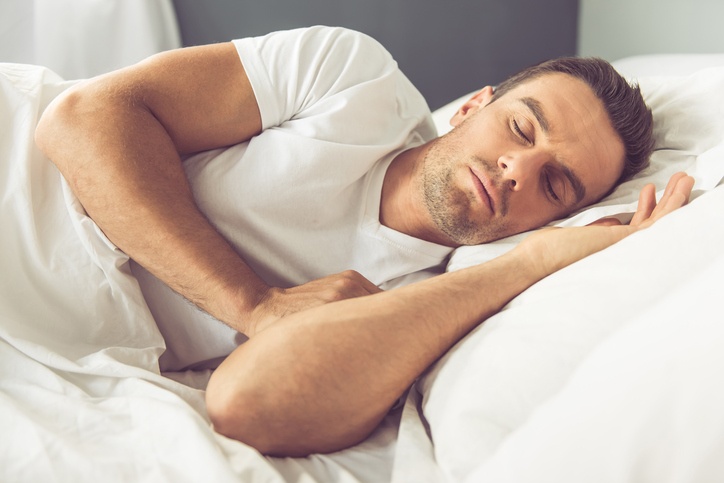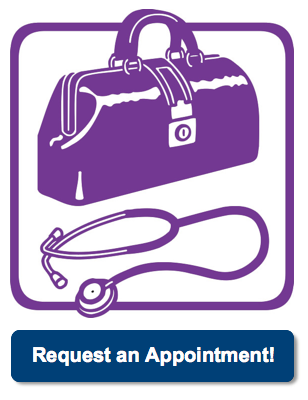
As a society, we lead very busy lives. There are children to run to sports events, volunteer opportunities, exercise routines, food prep, long hours at jobs and commuting times that are constantly competing for dominance. And, when we do have a spare moment we tend to jealously guard it and justify using it to binge Netflix or scroll endlessly through our Facebook feeds. The truth is though; we need to prioritize sleep over other parts of our lives.
Each year the National Sleep Foundation holds National Sleep Awareness Week. This year, it will take place on April 23 – 29, 2017 and the theme is Sleep Better. Feel Better. In line with that thinking we would like to give you five reasons to make sleep a priority this year.
1. Better Work
Working without enough sleep affects your performance. Your brain exists in a fog and your actions are all slower. Lack of sleep makes it so that you cannot reach your full professional potential. This sort of issue can result in less than stellar work and could ultimately hurt your career.
According to the American Psychological Association, “If a sleep-deprived person doesn’t sleep after the initial signs, the person may then start to experience apathy, slowed speech and flattened emotional responses, impaired memory and an inability to be novel or multitask.” Does this sound like someone you want to be? Chances are good that it’s no.
2. Avoid Disease
According to Arianna Huffington, the co-founder and editor in chief of The Huffington Post, “The new golden age of sleep science is revealing the vital role sleep plays in our every waking moment and every aspect of our health – from weight gain, diabetes and heart disease to cancer and Alzheimer’s.” Serious complications can result from letting sleep fall to the wayside. Lifelong struggles with medications like insulin and memory issues are in the cards if you don’t take the time to take care of yourself.
3. Exercise Motivation
Have ever tried to exercise when you haven’t slept? That’s right, we all have. One of two outcomes occurs. Either you force yourself to wake up and perform a lackluster version of your normal routine that produces minimal benefits or you stay in bed and resolve to work out the next day.
Often, the next day never comes…if you go to bed at a reasonable hour and make sleep a goal, exercising will become easier. Together sleep and exercise will help you lead a healthier life. Win, win!
4. Personality
Even if you are only slightly sleep deprived, it can affect your attitude. According to the American Psychological Association, “irritability, moodiness and disinhibition are some of the first signs a person experiences from lack of sleep.”While you may normally be an even-mannered individual, lack of sleep could cause you to “snap” or say things that you would normally not say.
5. General Safety
As a typical person, chances are that you operate some form of vehicle, whether it’s a car you use to get to work, a bicycle you use for exercise or even heavy machinery in your workplace. This sort of activity is usually within the capability of most people, but when sleep is an issue, it becomes a harder task to accomplish.
According to the American Psychological Association, “As a person gets to the point of falling asleep, he or she will fall into micro sleeps (5-10 seconds) that cause lapses in attention or nodding off while doing an activity like driving or reading and then finally experiencing hypnagogic hallucinations, the beginning of REM sleep.” For your own personal safety and for those who you can about, bump up sleep on your priority list; it could save your life.
The Next Steps
The American Psychological Association states that most people need around 8 hours of sleep per night, but of course, that varies by individual. So what should you do if you are having issues with sleep? Well, here are some options:
Stress Reduction
The American Psychological Association stated that, “Stress is the number one cause of short-term sleeping difficulties, according to sleep experts. Common triggers include school- or job-related pressures, a family or marriage problem and a serious illness or death in the family. Usually the sleep problem disappears when the stressful situation passes. However, if short-term sleep problems such as insomnia aren’t managed properly from the beginning, they can persist long after the original stress has passed.” If you are going through a stressful time, try to be aware that it may affect your sleep and take action to remediate the stress itself. It’s important to not allow your sleep issue to extend once the stress has passed.
Learn the Cause
Sometimes, simply educating yourself on a topic like sleep deprivation can make a world of difference. Identifying behaviors that may be causing your sleep issues makes it easier to remedy them. The American Psychological Association notes that sleep problems can be caused by any of the following:
- Brain and nervous system
- Cardiovascular system
- Metabolic functions
- Immune system
- Pathological sleepiness, insomnia and accidents
- Hypertension and elevated cardiovascular risks (MI, stroke)
- Emotional disorders (depression, bipolar disorder)
- Obesity; metabolic syndrome and diabetes
- Alcohol and drug abuse
- Stress
- Travel
- Environmental factors (example: your room is too hot or too cold)
Shut Off
In our current world there are lots of distractions available including cell phones, televisions, iPads and so much more. What do most of these distractions have in common? They produce light and light is counter-productive to a good night’s sleep. The National Sleep Foundation asserts the following:
“There is robust scientific data documenting the role of light in promoting wakefulness. Photoreceptors in the retina sense light and dark, signaling our brain about the status of the outside world and aligning our circadian rhythms (centered in a small region of the hypothalamus called the suprachiasmatic nucleus) to the external day-night cycle. This signaling of light and dark helps us to be alert in the morning and be able to fall asleep at the appropriate time at night. The power of light as an alerting agent is easily conceptualized when we think of the sun, but may be more difficult to appreciate when considering the light emitted from a tablet or smartphone.
Nonetheless, careful studies have shown that even our small electronic devices emit sufficient light to miscue the brain and promote wakefulness. As adults we are subject to these influences and our children are particularly susceptible.”
So, if you want to get the best possible night’s sleep, consider getting away from the distractions and shutting off.
—
If you are still having issues with sleep deprivation, it may be time to consider talking to your primary care provider about a sleep study.
Do you snore?
Are you tired?
Do you have a medical condition such as high blood pressure, diabetes, or obesity?
Are you a male over 50 years old?
If you answered yes to one or more of the questions above you may be at risk for obstructive sleep apnea (OSA). DMC Primary Care has a dedicated staff that focus on OSA. The team consists of Jennifer Cremone, APRN and Jessica Judkins, PAC who work under the guidance of John Welter, DO.
If you don’t feel that you are a candidate for a sleep study, but are still having difficulty achieving restful sleep, consider contacting your primary care provider. You can book an appointment by clicking below.

